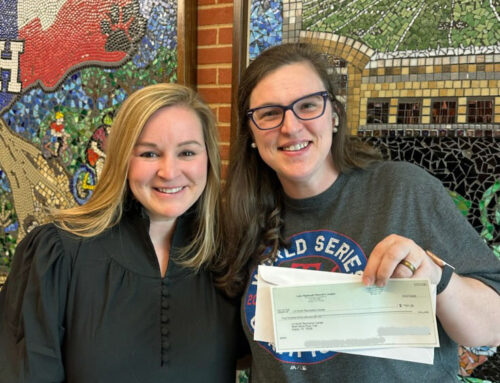Many of the students and parents who come to Debbie Wilkes and Stacy Myers don’t know what their dreams are, much less how to attain them.
But that’s what Wilkes, Myers and the rest of the RISD Transition Program staff help with – giving special education students a chance to live the life they want.
The new transition program, which services a number of Lake Highlands students, is for RISD mentally challenged students and teaches them, while still under the care of the district, to transition from school to real life.
“We look at what the student’s dreams are,” Wilkes says. “Then we work to make them happen.”
In Texas, school districts are responsible for students with disabilities until the student is 21 years old, meaning special education students could be in high school for seven years.
By the time their senior year rolls around, they are older than the rest of the students and are not exposed to age-appropriate activities, Wilkes says.
“They were not with their peers,” Wilkes says. “They were the ‘retards.’ They were not accepted.”
And when the students leave school, their families face, on their own, the task of creating a life for their child that does not center around school.
To address this situation, RISD created the transition program. The program begins working with students at age 16 to develop a life plan. After they graduate, the challenged students work with the program’s staff to find a job and create an independent life.
This is the program’s first year, and 14 students are participating. Wilkes, who was the vocational director at Lake Highlands High School, says this year has been scary for the participating students and parents because the program is new and no one knew how it was going to work.
“This year was a leap of faith,” Wilkes says.
Wilkes finds the students jobs, helping them apply for positions, training them and checking up on them periodically.
One student wanted to work with either the handicapped or elderly, so Wilkes contacted 25 retirement homes before finding the student a job at Tremont Retirement Community.
While Wilkes is helping them professionally, Myers and Patty Fagan help the students with other areas of their lives, such as balancing a checkbook and setting up a savings account, using public transportation, improving personal hygiene, seeking entertainment and making friends.
To enhance the students’ lives, RISD arranged for the students to take courses at Richland Community College. So far, students have taken computer courses, aerobics and walking. But the goal is not to give the students a college education, but rather to help them live, Myers says.
“It’s more of a functional type of education,” Myers says. “The college is more of a building block.”
The college level classes are adjusted for the challenged students. Tests are given orally or on tape, and special assignments are made, Myers says. The experience has been beneficial and has boosted the students’ esteem, Myers says.
Time spent with the students varies. At the beginning of the fall semester, one student needed 18 hours of supervision a week. By the end of the semester, she only needed 12 hours.
But Wilkes says one of her older students needs two hours a week, which is the goal – to get the students functioning with as little supervision as possible.
Wilkes says when the instructors leave the students, ideally classmates and co-workers move in as friends and teachers.
“That’s why it works,” Wilkes says. “People care.”
When the students turn 22, they can no longer participate in the program because they are not RISD’s responsibility and funding is not available for them. Their cases are turned over to the Texas Rehabilitation Commission and their parents, Wilkes says.
But the program helps parents with their children’s transitioning, giving the students a chance for a typical life and helping the community by keeping them off welfare and Social Security.
“It’s a win, win, win situation for everyone,” Wilkes says.





